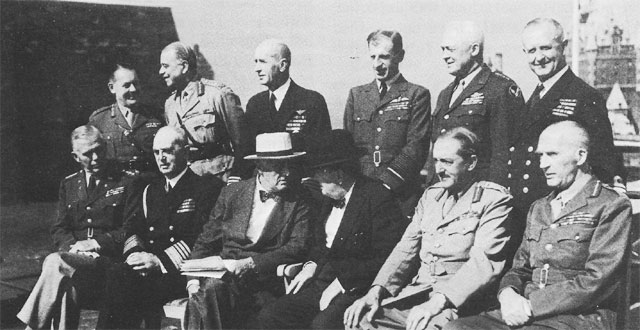Anglosphere Rising? The New Joint National Security Strategy Board
Tuesday, May 24th, 2011
Aaron Ellis of Egremont alerted me to this story today in The Guardian:
Barack Obama agrees to form joint national security body with UK
Barack Obama will announce during his first state visit to Britain this week that the White House is to open up its highly secretive national security council to Downing Street in a move that appears to show the US still values the transatlantic “special relationship”.
A joint National Security Strategy Board will be established to ensure that senior officials on both sides of the Atlantic confront long-term challenges rather than just hold emergency talks from the “situation room” in the White House and the Cobra room in the Cabinet Office.
….Britain believes that co-operation between the British and US national security councils marks a significant step. One British government source said: “The US and UK already work closely together on many national security issues. The new board will allow us to look ahead and develop a shared view of emerging challenges, how we should deal with them, and how our current policy can adapt to longer-term developments.”
The new board is a rare step by the White House, which guards the secrecy of the national security council. Founded in 1947 by Harry Truman, the NSC was in 1949 placed in the executive office of the president, who chairs its meetings.
Cameron tried to replicate the council when he established a body with the same name on his first full day as prime minister. It is chaired by the prime minister and designed to co-ordinate the work of the three Whitehall departments responsible for foreign affairs – the Foreign Office, the Ministry of Defence and the Department for International Development.
One government source said that Ricketts and Donilon would have to tread with care. “There is a little bit of disconnect between the two. The US national security adviser is a political appointment, whereas Sir Peter Ricketts is a civil servant. But this does make sense. We have a highly developed relationship with the USA where our military and intelligence officials work closely together. This is a useful move…
It is a start and I am heartened by the decision to formally include “strategy” as the body’s brief, that and the transatlantic nature coupled with bureaucratic differences may lead the new board to concentrate to a greater degree on looking at isues a strategic perspective rather than the S.O.P of wading into granular bureaucratic minutia. Given that I recently floated the idea of a Grand Strategy Board here ( along with Aaron), I can only be pleased to see a trend in that general direction from the Obama administration and our British allies.
Aaron was first on this story at Egremont, but he expresses some deep skepticism:
The Special Relationship lacks a purpose for the 21st century
….What immediately came to mind was the Combined Chiefs of Staff which, had it continued, might have become such a board. The engine to drive the Special Relationship forward. However, unless the UK is willing to throw away 40 years of foreign policy, the National Security Board (NSB) could be nothing more than a fair weather institution. The shared strategic interests that kept the alliance alive in the 20th century disappeared at the end of the Cold War. Other countries may prove more useful partners this century.
The given rationale for a NSB is to keep senior officials in touch with the broader challenges that face the two countries. Unfortunately, there are reasons why it might not succeed.
As global power shifts eastwards and emerging Asian states challenge US hegemony, Washington will be increasingly concerned with security and stability in the western Pacific. This is their broader challenge and President Obama is pursuing the correct policies in that region. The UK does not have a similar strategic clarity. If we want to enjoy the kind of relationship we enjoyed last century then our defence and foreign policies must expand east of Suez. Professor Michael Clarke, the head of the RUSI, has written that such a radical move “would represent the most judicious, and audacious, use of the hard/soft power combination yet seen in contemporary politics”. So far, however, the Government has shown no sign that it plans to make as big a shift as this in its ‘Big Picture’ thinking. Yet without it the NSB may prove fit only for fair weather.
….Nor do I see how the NSB can solve the institutional problems that I outlined last month. The board is supposed to move beyond crisis management, with senior officials from each side of the Atlantic focusing on the bigger picture. Given both countries’ bureaucracies have been promoting problem solvers at the expense of strategists, it isn’t evident that thinking will suddenly become more long-term. The same people will be shaping things, just this time sharing hats with Anglo-Saxon cousins. As with the Grand Strategy Board, the NSB’s utility also depends on the extent to which it taken seriously by our leaders. “You can organise government all you like, but strategy is an essentially political process that comes from the top,” Julian Lindley-French told MPs last September.
I think Aaron is spot on with the last paragraph.
Strategy is the crystallization of a kind of thinking process that needs to be present in the room or what you will have in the NSSB is a “coordination council” rearranging the deck chairs instead of charting the course. The British Cabinet and the Obama administration should strongly consider adding a few mutually acceptable wise men who do not have to juggle the supremely hectic schedules of a Foreign Secretary or a National Security Adviser, or at least some executive staffers recommended for the excellence of their strategic thinking. It will help lean against the relentless and universal gravitational pull of bureaucratic and political culture toward the short term time horizon and the tactical details.




